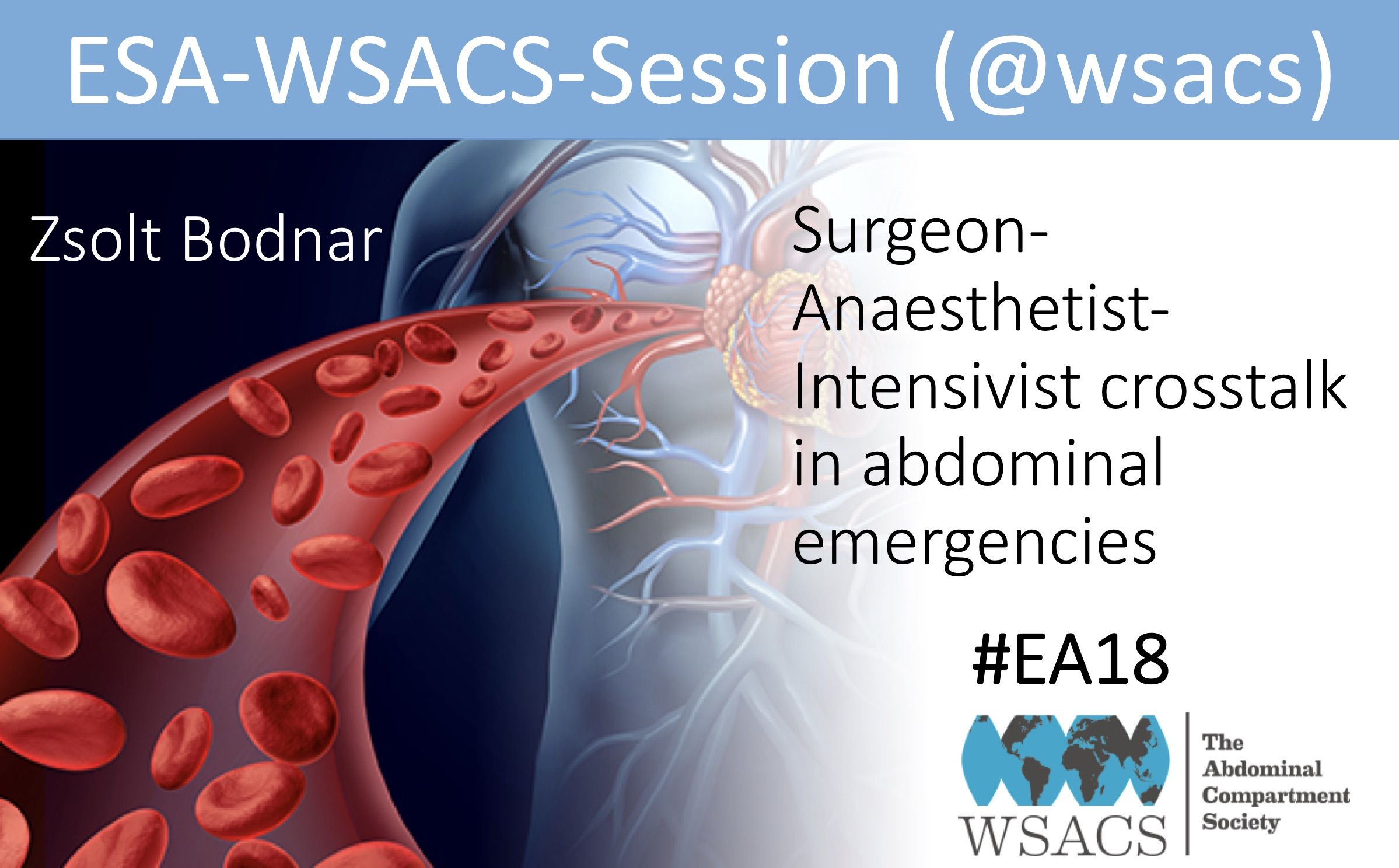
Surgeon-Anaesthetist-Intensivist Crosstalk In Abdominal Emergencies
WSACS session at #EA18
Date | January 25, 2019 |
Modified | April 19, 2021 |
Author | WSACS |
In this Euroanesthesia #EA18 lecture Zsolt Bodnar (Letterkenny, Ireland) discusses the Surgeon-Anaesthetist-Intensivist Crosstalk In Abdominal Emergencies
Surgeon-Anaesthetist-Intensivist Crosstalk In Abdominal Emergencies
A/Prof. Zsolt Bodnar, MD, PhD, FRCSI, FICS (drbozsolt@gmail.com)
Consultant, Department of Surgery, Letterkenny General Hospital, Letterkenny, Ireland
“One man never made a team.”
Detailed and well-structured handover from operating theatre to ICU is a cornerstone for uncomplicated postoperative care. The constant handover of the information between the members of the perioperative team (surgeon+anaesthetist+intensivist) is a crucial importance. Surgeon and anaesthetist are the key players in the operating room, aiming for a common goal – safety and good outcome for patient. Communication is the glue that holds the team together and is the source of motivation for all and the followings always should been discussed (Reintam et al.):
- exact description of surgical procedure (type of resection, number and placement of drains, timing of drain removal, etc…)
- possible bowel distention and impaired perfusion
- contamination of peritoneal cavity
- location of anastomosis, stoma (small bowel or colon), quality of anastomosis
- risk for bleeding
- type of closure (mesh, fascial, open abdomen, etc…)
- when to start oral diet / enteral feeding
Always clarify the followings:
- risk of NG tube replacement (possible injury of anastomosis)
- special risks related to the surgery (oral feeding)
- analgesia and sedation (opioid free tecniques)
- plan for nutrition
- damage control surgery plan
- special wound treatment (when? where? how? who?)
- special monitoring (IAP measurement techniques)
It is highly published that the failure in communication leads to serious adverse events. 95.5% anaesthetists feel that good communication between surgeons and anaesthetists is a must for quality patient care in the perioperative setting. (Gawande et al., Kumar et al.)
References:
- Gawande, A.A., Zinner, M.J., Studdert, D.M., Brennan, T.A.: Analysis of errors reported by surgeons at three teaching hospitals. Surgery. 2003; 133: 614–621.
- Kumar, M., Dash, H.H., Chawla, R.: Communication skills of Anaesthesiologists: An Indian perspective. J Anaesthesiol Clin Pharmacol. 2013; 29: 374–378.
- Reintam, A.B., Starkopf, J., Moonen, P-J., Malbrain, M.L.N.G., Oudemans-van Straaten, H.M.: Perioperative gastrointestinal problems in the ICU. Anaesthesiology Intensive Therapy. 2018; 50: 59-71.